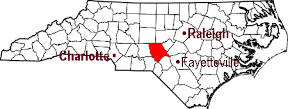This is adapted from a speech and column the editor wrote about his publisher, David Woronoff.
By John Nagy
Editor, The Pilot, Southern Pines, N.C.
As someone who has been in the newspaper industry for more than 30 years, I also know how distinctive The Pilot’s actions are. There are few like it anymore.
 |
| David Woronoff |
The Pilot on Day 1 under David Woronoff was a community newspaper. On day 9,614, it is a newspaper, a family of five magazines across the state, a full-service marketing agency, a telephone directory, a bookstore and a series of digital entities. And every single one of them is relevant to their community.
In a recent essay, journalist John W. Miller asserted that what people really want to read is everyday news about their community. Most newspapers are failing to connect with their communities, Miller wrote, “because they’re not giving people enough of what they really want: stories about their neighbors that aren’t puff or hit pieces, but not investigative stories that take six months to report, either. The writeup of the high school quarterback’s workout routine. The five-phone call story about the new hotel outside of town. The profile of the new centenarian on her 100th birthday. Solid six-hundred word stories about their communities they can read on their phone or computer every day.
“These stories aren’t winning any Pulitzers but they’re also impossible for amateur citizen-journalists to generate. They require professionals, and they build an audience, and they build trust. Call it mac ’n’ cheese journalism.”
The Pilot occasionally gets a great deal of grief for its editorial opinions — the recently concluded season of election endorsements always draws sharp responses from readers — and that’s OK. But people fail to see the bigger picture. Opinion is two pages out of a 24-, or 28- or 36-page paper. Unaccounted for in the critic’s barbed words are the bridge scores, the high school sports results, the club news, a story on volunteers, the new preacher and, yes, the obituaries that The Pilot prints regularly
 |
| Moore County, in North Carolina (Wikipedia map, adapted) |
David Woronoff has a fondness for saying that “relevance is the coin of the realm.” People may love you or hate you, but so long as you remain relevant, you’re OK. Across our country, in communities large and small, newspapers lost relevance because they stopped caring for and benefiting their cities and towns. Most newspapers no longer have local editors or publishers. They don’t own valuable downtown real estate. Their executives don’t serve local nonprofits or sit on the hospital board. They’re not investing in their own people and core businesses, much less the community.
Within the newspaper industry, the struggle for revenue is real, and in many communities, it’s insurmountable. But it’s the self-inflicted wounds — losing relevance, no longer telling stories about your community — that are avoidable.
Some in this business may look down their noses at the concept of mac ’n’ cheese journalism, but, for me, I am happy to continue serving it and serving you.
1 comment:
I think I have referred to "mac 'n' cheese journalism" as "chicken dinner journalism." It serves a purpose because as a former editor said about ribbon-cutting photos: "Make them (readers) happy."
Post a Comment